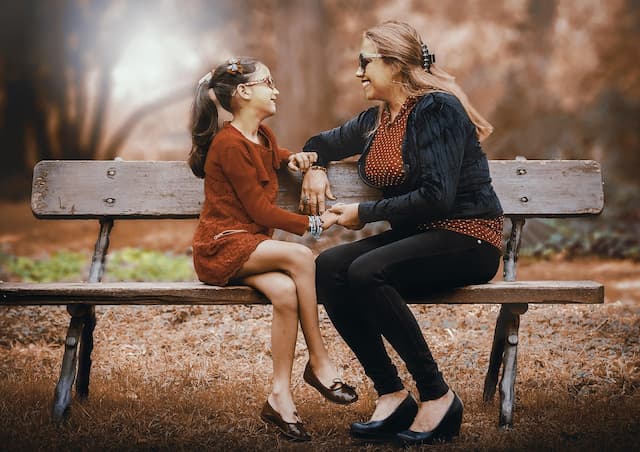Domestic Abuse and Faith
What Happens When Churches Don’t Respond?
Did you know that domestic abuse is a very real problem in the Christian community? Dr. Benjamin Keyes, then Program Director/ Associate Professor, School of Psychology and Counseling Regent University, VA, said in a 2016 interview, “In Christian marriages we have a much greater frequency of domestic violence than we do in non-Christian homes.”
Dr. Keyes goes right to the heart of the problem: “Part of the reason is that in a traditional role structure, whether in an evangelical, fundamental, or charismatic home, the woman is subservient to the man.”
Domestic abuse or violence is defined as a pattern of abuse where one person exerts power and control over another in an intimate relationship. The abuse can be physical, sexual, emotional, psychological, verbal, financial, or spiritual.
According to theology professor Steven Tracy in an article for ABC news, “It is widely accepted by abuse experts (and validated by numerous studies) that evangelical men who sporadically attend church are more likely than men of any other religious group (and more likely than secular men) to assault their wives.”
False Theology and Thin Religion
Surely churches that hear of abuse rush to the aid of the victims, right? Unfortunately, no.
(For real-life accounts of spiritual abuse by church, click here and here to read guest blog posts.)
All too often pastors and parishioners encourage women to stay in an abusive marriage. The reality is, if a victim of spousal abuse who’s afraid for her or her children’s safety goes to church for help, rarely does the church have the necessary protocols in place. Church leaders may even urge the abused to forgive and reconcile with their abusers, emphasizing a theology of suffering, and using Scripture to elevate the sanctity of the marriage covenant over the safety of the abused.
Men may also be victims of domestic abuse:
According to the National Domestic Violence Hotline, 1 in 4 women (24.3%) and 1 in 7 men (13.8%) aged 18 and older in the United States have been the victim of severe physical violence by an intimate partner in their lifetime.
( I haven't been able to find any information on abuse against Christian men in particular.)
Simon Smart, Executive Director of the Centre for Public Christianity, referred to theologian Miroslav Volf’s observation in an article about how “Submit to your husbands” is misinterpreted. Volf calls the misinterpretation “thin religion … stripped of its moral content and used as a weapon for goals completely unrelated to the faith.” This may be the case when pastors and male leaders in the church seek to retain control and keep women out of leadership.
Dr. Keyes suggested that women stay because of finances or their children and that they often do not see a way out. An article, #WhyIStayed: How Some Churches Support Spousal Abuse reveals other reasons.
- Spousal abuse may be considered a “family issue” and not a criminal offense. Reconciliation and forgiveness by the abused is often more convenient than facing the seriousness of the problem.
- Women are seen as inferior to men. Church leaders take Bible passages concerning the role of women out of context, falsely claiming women are to be silent and to submit to male authority.
- Churchgoers and victims themselves may have fears about being “bad Christian witnesses” to the congregation and the secular community if the abuse is revealed.
Today, more and more churches are realizing they’ve too often been enablers of domestic abusers.
What Happens When Churches Don’t Respond
Today, more and more churches are learning that their responses to abused parishioners have been wrong, pure and simple. They’re realizing they’ve too often been enablers of domestic abusers.
Emotional trauma to the victim.
If a woman decides to leave her abusive spouse, she often leaves the church as well after discovering it does not support her decision to leave a dangerous relationship. This parting can be an additional source of trauma, because the church may have been an important part of her life. The result: the one place an abuse victim can go to for safety and support becomes a place of pain and shame — in other words, more abuse.Physical trauma to the victim.
A woman who is pressured by the church to stay in an abusive marriage may very well suffer physical harm by staying. In fact, she could be in danger of losing her life at the hands of her abuser. A short video by Safe Havens, an interfaith partnership against domestic violence, gives contrasting real-life examples of the impact of different
ways churches respond to domestic abuse victims. In one instance of a church encouraging the victim to return to her abuser, sadly, she died at the hands of her abuser.
The church could bring harm to itself.
Often a church isn’t aware of its legal obligations, let alone attuned to its responsibilities as an institution entrusted with the spiritual care of parishioners. Why is that? A church that chooses to turn its back on domestic abuse victims in hopes of protecting its image may in fact be harming itself. In the article, Why Domestic Violence in the Home Endangers Your Church, church security expert Carl Chinn says, “As Christians, we are dedicated to the preservation of the marriage, as we should be. But when there is abuse, or even the suspicion of it, we, as the church, often refuse to recognize it for the danger it is.” Chinn says this is a mistake with potentially grave consequences. Statistics show that, in 2016, eleven of the forty-seven murderous attacks at churches and ministries had the same cause: domestic violence.
Churches can also end up in legal trouble.
An article in Relevant magazine, This Is How Churches Should Respond to Abuse, explains that, “Each state has different mandatory reporting laws, but churches must engage local law enforcement who are trained and equipped to investigate [abuse] accusations. Elder boards acting like arm-chair investigators do far more harm than good.”
The article goes on to state that pastors can be “naïve and easily manipulated.” They are often recruited to speak on behalf of the abuser during legal proceedings. Rarely do they speak in support of the victim. We should ask what is wrong with this picture and how can we be change agents.
A Better Way
How can churches become places of safety and support for abuse victims? What could compel them and how would they begin? Following are steps I’ve gleaned from various sources that churches can take.
Become informed and share that information
Understand what domestic abuse is, realizing victims of abuse are very possibly in the congregation. The church needs to be alert to the signs of domestic abuse and recognize its unique role in helping abused women who see the church as a safe place to come for help. Physical violence is often the most obvious abuse, but women also experience verbal, emotional, or sexual abuse by their husbands or partners.
Once church leaders have become informed, it’s important for them to educate the congregation on how they can support the abused. Begin with sermons on the subject. A study called I Believe You: Sexual Violence and the Church, by Sojourners found that, of pastors who responded to a survey, 65 percent had addressed domestic and sexual violence once or never in a sermon, 22 percent addressed it annually, 33 percent mentioned it “rarely,” and 10 percent had never taught on it. Change needs to happen from the pulpit to the pews.
Many churches quick to teach submission are often slow to point out that women were also among the followers of Christ – Beth Moore
Other ideas for disseminating information include studies in the adult Sunday school curriculum on family violence and the prevention of violence, as well as Bible studies about women and their value. In a letter to her Christian brothers, author Beth Moore wrote, “I’m asking for your increased awareness of some of the skewed attitudes many of your sisters encounter. Many churches quick to teach submission are often slow to point out that women were also among the followers of Christ (Luke 8), that the first recorded word out of His resurrected mouth was ‘woman’ (John 20:15), and that same woman was the first evangelist.”
Validate
When a victim comes forward, it’s critical that church leaders’ first impulse is to listen and believe the victim’s feelings and listen to her story. In a Lifeway Research Survey of evangelistic protestant pastors titled Protestant Pastors’ Current Responses to Domestic Violence, about 50 percent said they would believe the victim, 68 percent said they would investigate whether domestic violence was really present, and 46 percent of mainline protestant pastors would investigate rather than fully support the victim.
“When a woman reports domestic violence and her report is discredited or dismissed,” says Penelope Hefner, principal and family law attorney at Sodoma Law Union in an article for domesticshelters.org, “it not only takes away from her pain, but it sends a message to the aggressor that the action is acceptable.”Assess her level of safety
Churches can reduce trauma and even save lives by taking action to help abused women get to a safe place. They must remember an investigation of the abuser’s actions could prove fatal to the victim, if he feels threatened and takes his abuse to a higher level.
Partner with community services
It’s vital for churches to reach out to the community for support. The church and the community become stronger when they work together. The church should offer informed counseling or help the victim connect with other resources within the community. Community organizations will have access to government resources and training not available to the church.Offer support and unconditional love
Connecting victims with support groups, prayer partners, and providing ongoing emotional and practical support are other important roles churches can play. Churches should prepare to offer support and guidance for years, not days or months, even if the victim is receiving professional counseling.
In conclusion
While many churches historically have fallen short of being places of refuge and active support to victims of domestic abuse, all churches need to develop the resources to help reverse this troubling crisis.
Coming up
Would you like to hear about the results of churches implementing policies to support victims of domestic abuse? So would I. I’ve already begun contacting those in the know, and will be reporting back to you, as well as providing a list of resources. If you know of an example of how a church has chosen to help, please let me know in the comments below. Stay tuned!
Blessings,
Linda M. Kurth is a writer and a divorced and remarried Christian. In going through the divorce, she experienced a dichotomy of responses from the Christian community. After sharing some of those experiences in her upcoming memoir, God, the Devil, and Divorce, she's heard many stories of divorced Christians who have struggled with the same issues. This blog invites divorced Christians to tell their stories with the goal of encouraging churches to resist condemnation and become a source of healing and grace.
Do you have a divorce experience to share? Have you been shamed by a church because of your divorce? Or encouraged? There are hurting people who would like to hear your story, who need to know they are not alone, and who need to be encouraged. If you are interested in sharing your story, email Linda for guidelines: Linda@LindaMKurth.com













